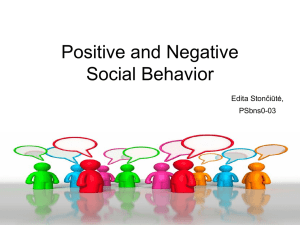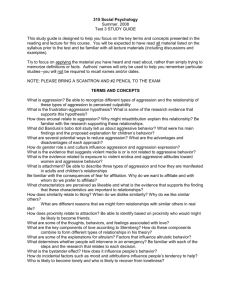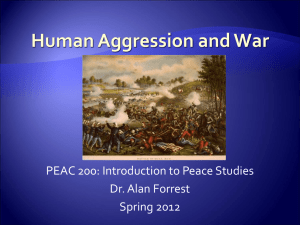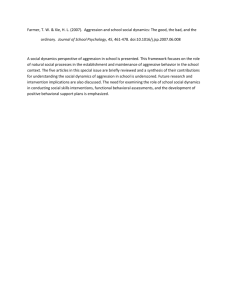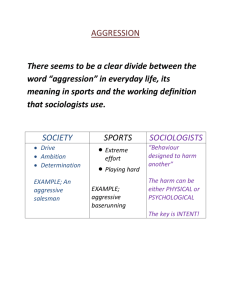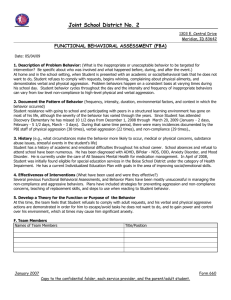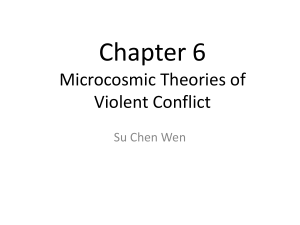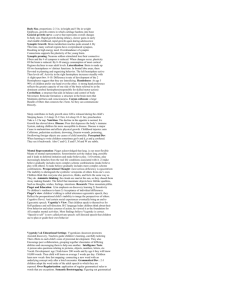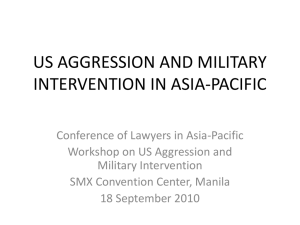Aggression
advertisement
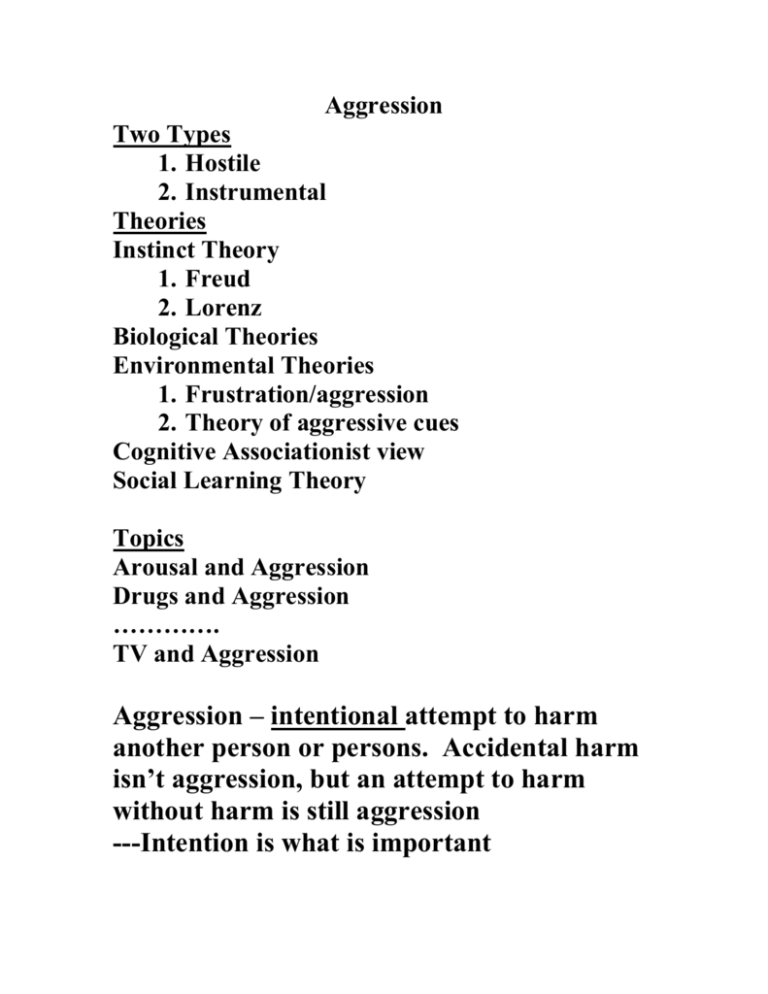
Aggression Two Types 1. Hostile 2. Instrumental Theories Instinct Theory 1. Freud 2. Lorenz Biological Theories Environmental Theories 1. Frustration/aggression 2. Theory of aggressive cues Cognitive Associationist view Social Learning Theory Topics Arousal and Aggression Drugs and Aggression …………. TV and Aggression Aggression – intentional attempt to harm another person or persons. Accidental harm isn’t aggression, but an attempt to harm without harm is still aggression ---Intention is what is important 2 Types of Aggression 1. Hostile – springs from or is provoked by pain, anger, or upset --- its primary purpose is to do harm or injure 2. Instrumental – not necessarily caused by anger or emotion --- goal is to gain some reward. Theories of Aggression 1. Instinct Theory – Aggression is inherited behavior and not learned. Everyone, regardless of age, sex, religion commits some violent act. ---Freud said violence could not be eliminated ---Conrad Lorenz – ethologist perspective….. Saw many species that were aggressive instinctive, but it doesn’t emerge unless there are cues in the external environment….saw aggression as adaptive for a species. Weakness animals do seem to learn aggression. If aggression were inherent in man then we would see some consistency in the style and amount of aggression, but we don’t. ------not a popular theory Biological Theories also locate the seat of aggression inside the individual…..different than instinct theories b/c they attempt to describe the mechanisms that causes it. Gene Theory—aggressive people that breed should produce aggressive children. ---evidence in humans that men with 2 “Y” chromosomes commit more violent crime. Males sex hormones thought to cause aggression….males more aggressive than females. Controversy because maybe men learn from society to be more aggressive, so, the main battle ground between views is if there are sex differences in young children. Environmental Theories – stress, frustration or things in the environment cause aggression. Support for this theory because a lot of aggression can be controlled through environmental manipulation. I. Frustration-Aggression Theory -- One of the earliest environmental focuses. Says that aggression is always because of frustration and frustration always leads to some form of aggression. Frustration – an interference with some goal. ---Theory says that as the amount of frustration increases, so should the amount of aggression. Displaced aggression – Theory says that aggression can be suppressed if punishment is expected after an aggressive act. ---if you can’t aggress at the source the aggression will be displaced to a similar target. Reducing aggression – If aggression does not follow the frustration, then the person will retain some of it and a readiness to aggress. Builds up until a person violently aggresses. Catharsis – used to describe when aggression reduces the need to aggress…. Two effects should follow aggression…1. aggression should reduce arousal and 2. the individual should be less likely to aggress because of reduced arousal. II. Theory of Aggressive cues – Says that the presence of items or events that people have associated with aggression influence when frustration leads to aggression. ---weapons effect study to test this idea…… Cognitive Associationist View – the relationship between negative affect and overt aggression is examined………hurt feelings automatically activate tendency to aggress and for flight (arousal)…..whether overt aggression follows depends on higher levels of thought and cognition. ---people don’t just act they think…. Social Learning Theory – learn when to aggress, how to aggress, and against whom to aggress.----mostly from parents but also peer groups and mass media 2 Mechanisms – 1. Reinforcement – children often rewarded for acting aggressively. 2. Modeling—learning through imitation….people prone to imitate behavior of other people….. ---bobo doll studies – more likely to imitate same-sex models, high status models --children imitated a real-life adult, and adult on film, or a cartoon. ---more likely to imitate if model is rewarded rather than punished. ---Performing vs. learning aggression – can learn aggression but will only express when there are rewards in the situation for doing so. ---Arousal and Aggression –Schacter’s theory of emotion --- label emotion based on environment…..arousal in situation can lead to aggression being transferred into another situation (label comes from second situation). TV and Aggression – 2 predictions 1. Frustration –Aggression theory predicts that catharsis should occur if people are allowed to play aggressively (video games) or if they vicariously experience aggression watching tv---so less likely to aggress with more aggression on tv and video games. 2. social learning theory – aggression on tv should lead to more aggression b/c it serves as a model, provides aggressive cues, and often see aggressors rewarded. ---support on both sides of the issue
